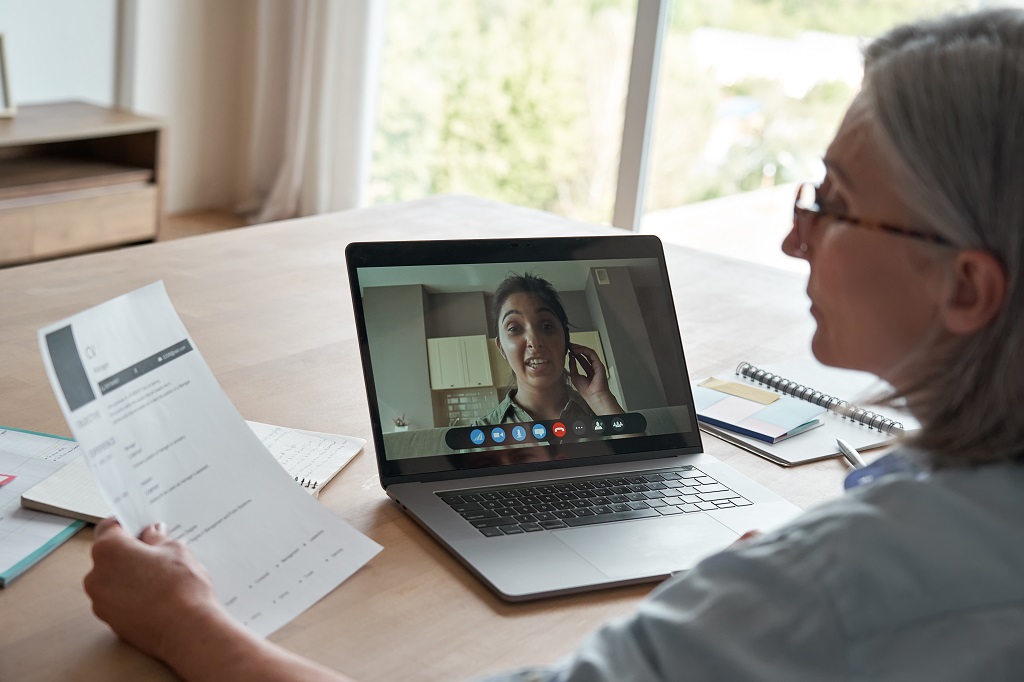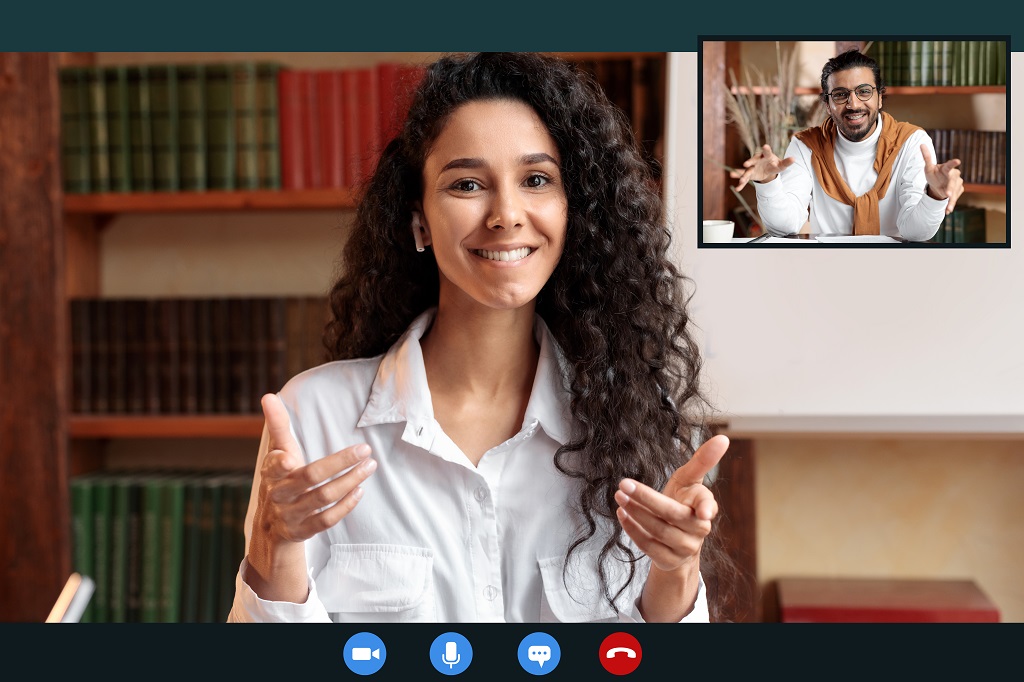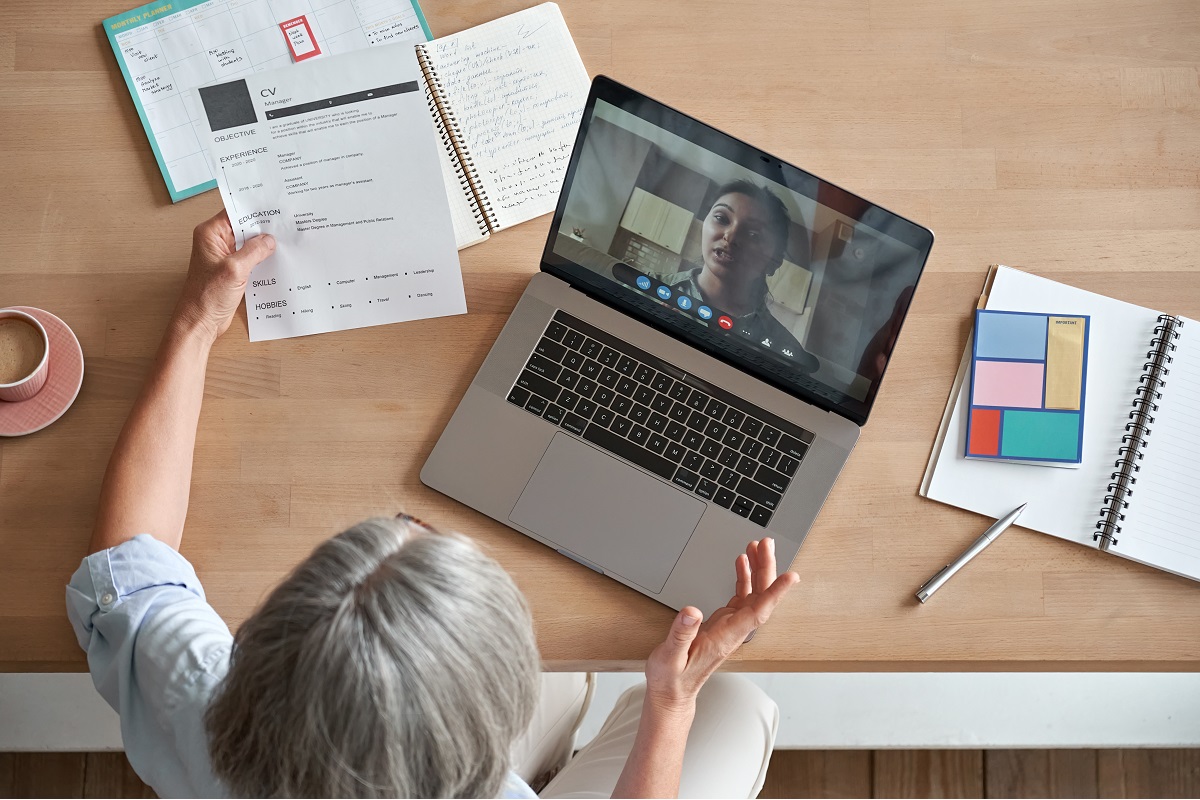Job interviews can be nerve-wracking. There’s this pressure knowing that despite you making it this far, a one-on-one conversation between you and the employer would make or break your future in the company that you applied for.
This stressful stage of one’s job search extends to the virtual realm, too. From the traditional interview method came the virtual interview setting, something expedited by technological advances — and necessitated by the COVID-19 pandemic. As more employers have begun adopting this method, how can you make sure you ace this critical part of your application?
Let’s take a look at virtual interviews, how they differ from traditional arrangements, and both their pros and cons. We hope that these tips would help you make the job-seeking process easier and less complicated.
What is a Virtual Interview?
From the word itself, a virtual interview is an interview that takes place virtually and online. Virtual interviews often use videoconferencing or other online communication platforms such as Zoom, Skype, and Microsoft Teams.
An interview conducted virtually applies same objectives face-to-face interviews have, which include assessing the potential employee’s fit for the company. Such assessment can happen even if both interviewee and interviewer are miles apart or even in different time zones.

Traditional Interview vs. Virtual Interview
If virtual interview is basically the same as traditional or face-to-face interview, then what sets it apart? Here are a few differences to know:
Flexibility
First off, there is flexibility in all aspects. From scheduling to the interview, there is flexibility. An interview can be scheduled and done in just a few clicks and even with the two parties’ miles apart in a virtual interview. For traditional interviews, both parties should be present at the same place at the same time.
Time and Resources
Virtual interviews can be done with just a small amount of your time because you only need to be present during the actual time of your interview. You also just need a device and internet connection. In contrast, traditional interview most of the time require you to travel to where the company is situated in, thus allotting considerable time for commute.
Cost
Resource allocation also entails money for gas or fare, budget for meals, and even for your attire. This leads us to the differences in cost. Obviously, there are more costs spent with face-to-face interview than with virtual interview.
Talent Pool of Applicants
The roster of candidates being interviewed is wider with virtual interviews. Candidates from all around the globe can apply for the job and be interviewed. For traditional interviews, there will be limitation, since only those who are nearby or willing to travel would want to apply and interview for the job.
Approach
Finally, traditional interviews follow a hierarchal approach, which means it might take time for your application to progress. On the other hand, for virtual interviews, there is a more definite timeline.
In terms of efficiency, it is safe to say that virtual interviews are more efficient compared to traditional interviews; from actual monetary costs to time and resources spent.
Types of Virtual Interviews
In terms of efficiency, it is safe to say that virtual interviews are more efficient compared to traditional interviews; from actual monetary costs to time and resources spent. With that in mind, here are a couple of types of virtual interviews:
- Asynchronous or One-Way Video Interviews – Here, an employer sends a set of questions to be answered by the candidate. The candidate will then record a video of themselves answering the questions. This video will now be sent to the employer for further assessment.
- Two-Way Live Video Interview – In contrast to the asynchronous virtual interview, this type requires both parties to be online at the same time. A real-time virtual interview is being participated by both the interviewer and the interviewee. Two-way live video interviews use video conferencing platforms.

Pros and Cons of Virtual Interviews
Pros
1. Flexibility
There is flexibility for both parties. Both interviewees and interviewers can do the interview in the comfort of their homes. No need for long commutes and having to pause everything just to interview.
2. Time-Saving
You just have to be present during the actual interview. No need to travel time and waiting for your turn. It is also much easier to schedule. Because it is just online, candidates and interviewers can easily squeeze in some time to interview.
3. Possible Decision by Committee
A decision can be made by more than just one person. More than one interviewer can join the interview. Aside from that, a recording of the virtual interview can also be shared internally to give other teammates the chance to share their thoughts about the candidate.
4. Larger Pool of Candidates
Basically, anyone from around the world can be interviewed. What if the best employee or company for you is situated on another continent? Virtual interviews can make it happen.
5. More Comfort for Both Parties
Interviewees have their prerogative where to be at during virtual interviews. This can help them relax and perform well. If they are familiar with their surroundings, they can be more eloquent and presentable.
Cons
1. Internet Connection Problems
Just one disconnection can make or break your interview. If you found yourself with no internet connection, it may be hard for you to do virtual interviews. Connectivity issues during the actual interview may also hinder the success of a virtual interview.
2. Limited Perception
This loss in translation goes both ways. An interviewer may not be able to properly see the body language of a candidate and vice versa. They can only see what the other person has decided to share on their ‘screen’.
3. Heavy Reliance on Digital Tools
For a virtual interview to run smoothly, you must be equipped with proper digital knowledge. This may hinder some people who are still trying to learn how to use various digital tools and gadgets. Availability of proper equipment is also now a consideration when undergoing virtual interviews.
4. Distracting Environment
Since virtual interviews can be done anywhere, there might be instances when your household might be a distraction during your interview. Other external factors such as weather conditions, pets, cars passing by, and the like might be a distraction for both the candidate and the employer.

Helpful Tips on Nailing Your Virtual Interview
1. Prepare.
Just like in a traditional interview, do your best to prepare for the virtual interview, too. Conduct advance research about the company and the role. Research about potential questions you can ask them. Keep in mind your schedule and make sure that there is no conflict and you will be able to show up.
2. Test your equipment and internet connection.
Since virtual interviews rely heavily on the internet and your devices, take the time to test your equipment if they are working properly. Stay updated with your internet service provider for scheduled outages and other advisories. Also, have backup microphones, camera, devices, and internet connection, among others, if possible.
3. Practice.
Practice being on camera so you know how the interviewer will see you. Take note of your actions and body language in front of your device so you can improve accordingly for the virtual interview itself.
Related Article: Answering the Question “Are You Interviewing with Other Companies?”
4. Inform others about your interview.
This applies to those job hopefuls living with other people at home. If you’re one of them, inform the folks at home about your schedule so they won’t cause any distraction for you during your interview. They can help you prepare for an interview as well. You can do mock interviews with them to prepare you for your interview. Ask them to note the things that you should improve.
5. Even in unfortunate situations — stay calm!
Finally, unforeseen occurrences can still transpire despite your best efforts to prepare. For one, if you get disconnected from the virtual interview, stay calm. Check your internet connection and hardware. Once reconnected, apologize for the inconvenience and just go on with the interview. Stay on the call and maintain your focus. You don’t want your potential employer to see that you are suddenly nowhere to be found or doing something you don’t want them to see.
Ready for Your Virtual Interview?
With these tips and information in mind, you are now more than ready to do a virtual interview! Because of such an arrangement’s innovative nature and dependence on digital tools, most virtual interviews are done in the IT industry. Needless to say, before you have your virtual interview, you first have to impress the recruiters with your background. A compelling resume is just what you need, highlighting all your relevant experiences and skills.
Need help with that? Don’t sweat, because we are here for you! Infotech Resume is a go-to partner for reliable IT resume writing services that will help you have a comprehensive and impressive resume. What are you waiting for? Jumpstart your career with an outstanding resume. Contact us now!





